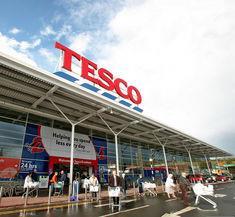
UK supermarkets have begun the inevitable backlash against suppliers, as they battle to sustain or increase their margins while maintaining their value proposition in the eyes of the general public.
Tesco has led the way in the last fortnight, asking suppliers to fund its bid to be Britain’s biggest discounter; but suppliers to other supermarkets have told FPJ that the UK’s number-one chain is far from alone in tightening the screw on its struggling supplier base.
A stream of disgruntled suppliers have been herded through Tesco’s Cheshunt base, first to see what is being branded “Discounter House” - a warehouse to showcase Tesco’s new discount focus. They were then directed to booths to see returns vanish before their eyes as buyers read a set of demands that includes over-rider increases of five per cent and more and reduced prices for the retailer. With more than 30 per cent of the UK retail food market, Tesco is implicitly issuing take-it-or-leave-it ultimatums to suppliers it claims have been making hay during food price inflation, while the supermarket chains have kept prices low for the consumer.
Tesco’s UK sales rose by 9.7 per cent to £20.1 billion in the half-year to August 23. Profit before tax sat at £1.435bn for the period. Fresh produce analyst Plimsoll estimates that the average profit margin for companies in the fruit and vegetable industry is between one and two per cent.
Tesco has refused to speak publicly about negotiations with individual suppliers, but a spokesman for the chain said last weekend: “Our customers are facing tough times as a result of the current economic slowdown and they are looking to Tesco to help. They expect us to continuously negotiate the very best deals on their behalf. This is what we have been doing with some of our most significant suppliers this week.”
The market leader appears to be running scared of the discount chains that still represent only six per cent of the retail market. Clearly enjoying the situation, Aldi added fuel to the fire this week by claiming that it could take as much as 40 per cent of the UK market.
Aldi also claims to be taking more shoppers away from Tesco than any other chain, but Waitrose and Sainsbury’s were also singled out to FPJ for turning on their supply base as competition intensifies. “Waitrose, if anything, is acting more appallingly than Tesco,” said one insider.
A massive 88 per cent of respondents to this week’s poll on freshinfo said that the supermarkets are unwilling to understand and recognise supplier issues during the credit crunch. And another supplier told us: “The largest customers in this country have far too much power, particularly the big four. It’s all very well for them to bang on about giving the consumer choice - but where is the choice for suppliers and their growers?
“The margin they are looking to take out of the job leaves nothing for anyone else. They say they are obliged to keep food price inflation down on behalf of consumers and the government, but in reality it’s the supply chain here and around the world that is doing that.”
There has been massive turnaround in the fresh produce departments of most multiples in the last year, and one insider said that is part of the overall plan. “It’s easy for new buyers to come in and butcher the supply base. They don’t know the fresh produce industry, so the lowest cost becomes the best deal, irrespective of the quality or service on offer.”
No supplier is willing to go on the record with comments for fear of immediate reprisals. Another said anonymously: “They will only care when the last fall guy stops wanting to, or simply cannot supply them any more. As long as they have product, the suppliers are not important.”



